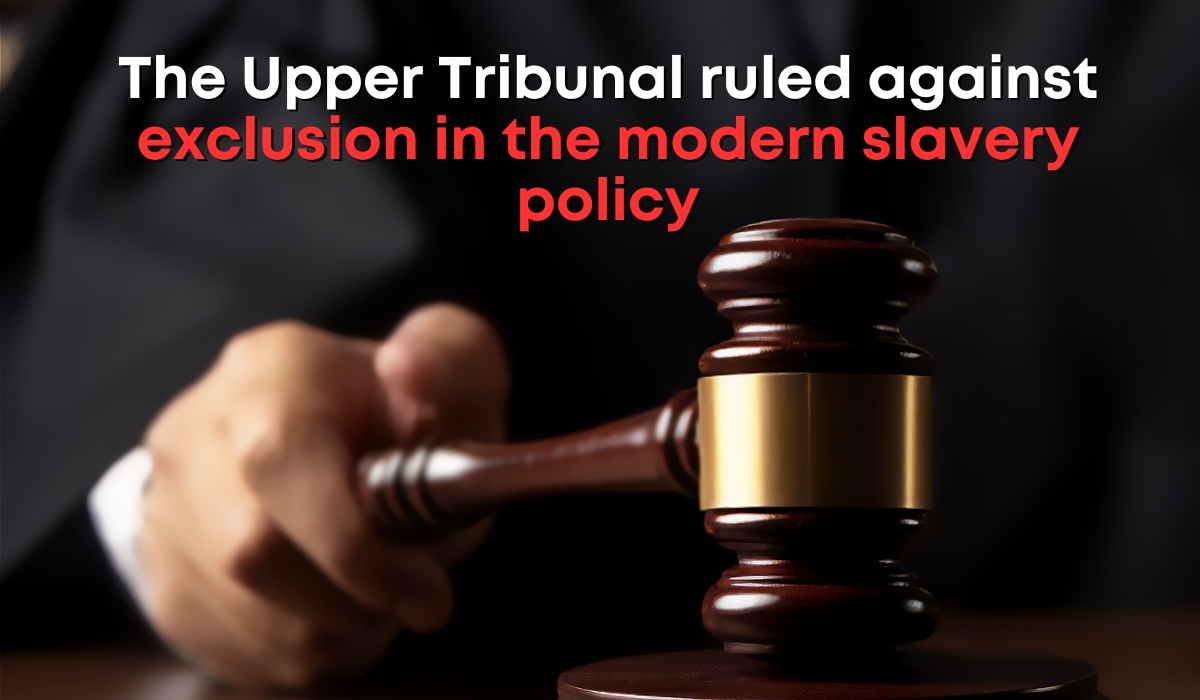In a landmark decision, the Upper Tribunal has ruled that the Home Secretary’s guidance on “Discretionary Leave” for victims of modern slavery, as outlined in version 10 published on 16 March 2023, is partially unlawful. This ruling specifically concerns those victims who, before 30 January 2023, were recognized as victims of trafficking and had pending trafficking-related asylum claims while also being subject to deportation proceedings. The case in question, R (VLT Vietnam) v Secretary of State for the Home Department, highlights the complexities surrounding the implementation of the Nationality and Borders Act 2022.
Background: The case centers around VLT, a Vietnamese national in his 50s who endured prolonged trafficking in both Vietnam and the UK. VLT’s harrowing experience included being forced into cannabis cultivation, leading to a conviction for conspiracy to produce cannabis in 2012 and subsequent deportation orders. Despite deportations, VLT was repeatedly re-trafficked to the UK, compelling him to seek asylum based on the risk of re-trafficking in Vietnam. His asylum claim remains unresolved.
Central issue and ruling: At the heart of the legal challenge was the Home Secretary’s refusal to grant VLT a temporary residence permit while his asylum claim was under consideration. The guidance excluded those with a deportation order, which VLT argued was in breach of Article 14(1)(a) of the Council of Europe Convention on Action against Trafficking (ECAT). This article, he contended, did not permit exclusions based on deportation status.
The Upper Tribunal sided with VLT, stating that the guidance’s exclusion of individuals with deportation orders contradicted the commitments to ECAT. This decision indicates that victims like VLT are entitled to a temporary residence permit, irrespective of their deportation status.
Implications and future actions:
This ruling mandates a revision of the Discretionary Leave policy to align with ECAT obligations, ensuring that trafficking victims subject to deportation orders are not excluded from temporary residence permits. The Home Secretary, having been denied permission to appeal by the Upper Tribunal, may seek to challenge this decision in the Court of Appeal.
This development underscores the evolving legal landscape around modern slavery and immigration in the UK, highlighting the need for nuanced policies that adequately protect victims of trafficking while balancing immigration control. As the situation progresses, further legal actions and policy amendments are anticipated to bring clarity and justice to this complex and sensitive area of law.
Get in touch: For a comprehensive understanding of your options or queries on UK immigration matters, contact GigaLegal Solicitors at 02074067654 or click here to book a no-obligation consultation with an immigration expert.


